By the time I left for Baku I'd been living full time on the boat for close to nine months, and I'm pleased to report that I'm finding it a much more pleasant, normal, comfortable existence than I expected. Yes, there are some compromises, but they seem almost invisible to me now. Human beings are remarkably adaptable, though, so recently I've begun to wonder whether my boat life really is as normal as I think it is, or whether a hundred small compromises have blended together into what now seems normal but is objectively actually kinda weird. And being aware that there seems to be a certain appetite for blog posts about the boat (Steve G, I'm looking at you... Are you still out there?) I thought I'd examine this theory in more detail, using a couple of specific examples.
I often say that boat life makes you very aware of everything you consume. This is because every resource on the boat is finite, including some intangible ones. For instance: As soon as you moor in a new place the clock is ticking - you can only stay for a maximum of two weeks. Mooring time is finite. So is the amount of water in the water tank, the amount of diesel to run the engine, the amount of electricity in the batteries, the amount of coal and kindling for heating, the amount of propane for cooking and hot water, the amount of empty space in the toilet tank, and the amount of Internet data each month. Everything you do is a small trade off and those trade offs, while mostly invisible or untroubling, are a constant part of boat life. The happiest of boat days is when I've successfully moved to a nice new mooring with no engine-related mishaps along the way, having filled the water tank, emptied the toilets tank, disposed of all garbage and recycling, and landed somewhere with a strong mobile phone signal. Bliss.
On the less weird end of the spectrum, I am always very conscious of the battery level on the boat. Like, VERY conscious. I even bought a fancy digital battery meter that tells me to within 0.1% the battery charge level. And it tells me exactly how much current is flowing in or out. And the wattage, and the number of amp-hours left at the current consumption rate. Love that meter. Things that consume a lot of power include the water heater, water pump and shower drain pump (but they all run very intermittently, so they're no biggie). The inverter that turns my 12 volt battery power into 240 volt mains power is a bigger hog, especially when I charge my computer, and of course the big culprit is the hair dryer. So I outsource stuff when I can. For instance, the computer and iPad often get charged in cafes or other mains-powered places when possible. Or when that's not possible they get charged when the sun is shining or the engine is running. Hair drying is not outsource-able. Damn. When I dry my hair I tend to stand right next to the battery meter and do it in stages. Dry a bit. Let the battery recover a bit. Dry a bit. And so on. And I simply don't have some things that are big power hogs. I have a hand-cranked coffee grinder instead of electric. And I don't have a microwave (though that's more about not having the space). I do miss having a toaster, though. And there are times when a little electric heater would be really nice.
Internet access can also be a concern. I have one of those wireless thingies that spits out wifi, but it's limited to 20GB each month. If I run out, an extra 5GB is £15. None if this is the end of the world, but it does mean that I don't do any big downloading or streaming on board. For instance, if I'm posting photos to Flickr for the blog, I'll do it at a cafe or other public wifi spot. But what about Netlfix? How do I watch "Stranger Things" Not having that ability would be the kind of thing that made boat life feel like a real compromise and not a proper normal 21st century existence. Here's where it gets more clever. My phone plan includes unlimited data (for £20/month! Eat your hearts out Canadian readers!) This means that, with the help of an exorbitantly priced and annoyingly fragile Apple video adapter, I can plug my phone into the TV and watch on the big screen. Usually this works just fine, though if the mobile signal where I'm moored is a bit weak it can be frustrating. That's when I turn to stuff previously downloaded onto another device. All in all, it works just fine. And when it doesn't work, I can always read a book, right?
Boat life weirdness gets a bit more pronounced when considering water use. One of the things I was concerned about when I moved on board full time was the size of the water tank. That tank supplies all fresh water on the boat for cooking, washing up, laundry and showers and holds about 200 litres. (I use two litre bottles of water for drinking, which, happily, also double as ballast in the boat. Multi-tasking is an important concept on the boat. Also, occasionally a slug gets into the water tank, so you don't want to be drinking that stuff.) Two hundred litres is not a lot of water. And running out of water is a show-stopping event. Even if I was happily ensconced in the best mooring spot in London, if I ran out of water I'd have to decamp to fill the tank, hence probably losing the mooring.
Go Stay Work Play Live's crack fact-checking team (AKA "Google") have conducted extensive research and determined that the average one-person household in the UK uses, on the low end of the scale, about 45 cubic metres of water annually. That's 123 litres DAILY. Now that I live with a keen appreciation for water conservation, I find that figure staggering. If I used that much water every day I'd have to fill up every 38 hours. Obviously that's ridiculous, but equally obviously, I was right to be concerned. However, fret not, dear readers. I'm not sure how those figures are calculated (maybe they slipped a decimal point?) because I'm happy to report that I have found it's not difficult to make 200 litres of water last two weeks. And yes, I am showering.
How do I do it? Well, one of the biggest water hogs is eliminated right away - I've got a chemical toilet so there's no fresh water being flushed down the loo. (Eventually I hope to have a composting toilet, but for now the chemical is more than adequate.) Beyond that, the big water consumers are showering and laundry. When I can, I do laundry at laundrettes, because that means I don't have to festoon the boat with drying laundry for a day. Even so, in a normal two-week cycle, doing one load of laundry is fine. Where the laundry system falls down is with items that need ironing. Even with my mostly-not-working casual boat lifestyle, there are still some things that just need it. Luckily, I've realised that local dry cleaners will wash and iron shirts for a few quid each, and that's been working well. Yes, there's a small cost, but that's #boatlife.
As for showering, if I don't run or get horribly sweaty during the day, I don't bother. This means I probably shower about five times a week as opposed to every day. (London-based friends can, I hope, report that I have not become notably dishevelled or smelly since moving onto the boat.) And when I do shower, I do the "navy shower" thing. Turn on the water long enough to get wet and lather up. Turn it off. Wash. Turn on the water to rinse. A boat shower uses about 12 litres of water. (Yes, I have measured. I actually have a gauge to measure the water level. Some people might call it "A Stick With Lines On It" but I call it a gauge.)
As for washing up (that's dish washing for Astute North American Go Stay Work Play Readers), I have a few strategies there as well. For instance, I never fill the sink full of hot soapy water. Usually I only have a few dishes to do, so I'll heat a bit of water in the kettle and fill a small container in the sink - something like a plastic tupperware tub or a small saucepan. Soap goes in there, and I dunk a washing sponge in, wash each dish, and set it aside in the sink. Then I turn the tap on at a low volume and rinse and stack the dishes in the rack. Easy peasy.
Note that I said I heat water in the kettle. (Which is heated on the stove of course - certainly not electric!) This is because firing up the water heater comes with that long period of time where you run water through the system while it heats up. No way! It's a more efficient use of water (and possibly gas as well) to simply warm up the kettle a bit. It doesn't even have to be boiling. On the more extreme/weird end, I often boil an egg in the shell for breakfast, meaning I end up with a small saucepan of boiling water after the egg is removed. On those mornings the lid goes back on that pot to conserve the heat and when breakfast is done that water gets a squirt of soap and does double-duty for washing up. This is one of those things that makes me wonder if I've tipped over the edge from clever to weird. Is this simply smart use of resources? Or has boat life blinded me to the fact that I've become a water-hoarding freak? Comments welcome below.
And let's expand on that shower thing a bit. (Setting aside the not-showering-daily thing, which I know some people might struggle with, but is not really overly odd.) I recently realised that the showering experience on the boat which now seems perfectly normal to me, is, in fact, somewhat complex. Here's how I'd explain things to you if you wanted to have a shower on the boat;
I've realised that there's actually a lot more I can say about life on the boat, so I'll continue to parcel it out as and when the mood strikes. In the meantime I'm back in Baku which is weird, but also weirdly normal. For instance, the power in the wall never stops. And the water flows out of the taps forever. Again, weird but also weirdly normal. But not long after I arrived and got into my hotel room, I realised that even though it's bigger and more comfortable and someone comes and brings me clean towels when I want... I still miss my little boat.
I often say that boat life makes you very aware of everything you consume. This is because every resource on the boat is finite, including some intangible ones. For instance: As soon as you moor in a new place the clock is ticking - you can only stay for a maximum of two weeks. Mooring time is finite. So is the amount of water in the water tank, the amount of diesel to run the engine, the amount of electricity in the batteries, the amount of coal and kindling for heating, the amount of propane for cooking and hot water, the amount of empty space in the toilet tank, and the amount of Internet data each month. Everything you do is a small trade off and those trade offs, while mostly invisible or untroubling, are a constant part of boat life. The happiest of boat days is when I've successfully moved to a nice new mooring with no engine-related mishaps along the way, having filled the water tank, emptied the toilets tank, disposed of all garbage and recycling, and landed somewhere with a strong mobile phone signal. Bliss.
One of my favourite moorings, near Westbourne Park. It's central, close to transport and groceries and cafés with free wifi, but still leafy and pleasant.
My super-smart battery meter
Boat life weirdness gets a bit more pronounced when considering water use. One of the things I was concerned about when I moved on board full time was the size of the water tank. That tank supplies all fresh water on the boat for cooking, washing up, laundry and showers and holds about 200 litres. (I use two litre bottles of water for drinking, which, happily, also double as ballast in the boat. Multi-tasking is an important concept on the boat. Also, occasionally a slug gets into the water tank, so you don't want to be drinking that stuff.) Two hundred litres is not a lot of water. And running out of water is a show-stopping event. Even if I was happily ensconced in the best mooring spot in London, if I ran out of water I'd have to decamp to fill the tank, hence probably losing the mooring.
Go Stay Work Play Live's crack fact-checking team (AKA "Google") have conducted extensive research and determined that the average one-person household in the UK uses, on the low end of the scale, about 45 cubic metres of water annually. That's 123 litres DAILY. Now that I live with a keen appreciation for water conservation, I find that figure staggering. If I used that much water every day I'd have to fill up every 38 hours. Obviously that's ridiculous, but equally obviously, I was right to be concerned. However, fret not, dear readers. I'm not sure how those figures are calculated (maybe they slipped a decimal point?) because I'm happy to report that I have found it's not difficult to make 200 litres of water last two weeks. And yes, I am showering.
How do I do it? Well, one of the biggest water hogs is eliminated right away - I've got a chemical toilet so there's no fresh water being flushed down the loo. (Eventually I hope to have a composting toilet, but for now the chemical is more than adequate.) Beyond that, the big water consumers are showering and laundry. When I can, I do laundry at laundrettes, because that means I don't have to festoon the boat with drying laundry for a day. Even so, in a normal two-week cycle, doing one load of laundry is fine. Where the laundry system falls down is with items that need ironing. Even with my mostly-not-working casual boat lifestyle, there are still some things that just need it. Luckily, I've realised that local dry cleaners will wash and iron shirts for a few quid each, and that's been working well. Yes, there's a small cost, but that's #boatlife.
Picturesque backlit tea towels. Note the ingenious bungee cord clothesline system. No clothespins required!
Here's the water tank, which sits under the bow deck. That's the deck hatch/lid leaning against the boat. And the lid of the tank itself is slid open a tiny bit to insert the gauge, which is clearly reading 100 litres.
Note that I said I heat water in the kettle. (Which is heated on the stove of course - certainly not electric!) This is because firing up the water heater comes with that long period of time where you run water through the system while it heats up. No way! It's a more efficient use of water (and possibly gas as well) to simply warm up the kettle a bit. It doesn't even have to be boiling. On the more extreme/weird end, I often boil an egg in the shell for breakfast, meaning I end up with a small saucepan of boiling water after the egg is removed. On those mornings the lid goes back on that pot to conserve the heat and when breakfast is done that water gets a squirt of soap and does double-duty for washing up. This is one of those things that makes me wonder if I've tipped over the edge from clever to weird. Is this simply smart use of resources? Or has boat life blinded me to the fact that I've become a water-hoarding freak? Comments welcome below.
Here's the washing up system. Including saucepan in the sink with soapy egg water.
"A shower? Yeah no problem at all. Just a couple things... I have to turn on the inverter, so the water heater has power. That just takes about thirty seconds to kick in. Fine. It's fine now. Now you want to turn on the hot water full blast. Just the hot. Full blast. Because the hot water heater requires a high volume of water to turn on. You'll hear it kick in. It makes a faint "fwoomp" noise. There! Did you hear that? No? Well it was there. See? It's warming up. But if it doesn't kick in you can turn on the hot tap on the bathroom sink as well, which increases the water flow and then when it fwoomps you just turn the sink off and it'll all go to the shower. And then it will get really really hot, so you can add cold water, but not too much because then the flow to the water heater will go down too much and it'll stop and you'll have to fwoomp it again. Ok? Good. Also just make sure the circuit for the shower drain pump is on before starting. So anyway, I normally soap up and then turn the water off to scrub. Then while it's off you can turn on the drain pump. Just feel outside the shower on the wall there's this little switch. Turn that on. You'll hear the pump working. Then when the sound changes from a sort of pumping noise to a sort of sucking noise you can turn it off. You'll be able to tell. No really, it's totally obvious. Then you can turn the water on again and fwoomp it and rinse off. But keep it quick, OK? And then when you're drying off run the pump again. And that's it. Oh, except remember to turn the inverter off when you're done. Unless you want to dry your hair. Which is no problem at all. Just a couple things about drying your hair..."Ok is that weird?
I've realised that there's actually a lot more I can say about life on the boat, so I'll continue to parcel it out as and when the mood strikes. In the meantime I'm back in Baku which is weird, but also weirdly normal. For instance, the power in the wall never stops. And the water flows out of the taps forever. Again, weird but also weirdly normal. But not long after I arrived and got into my hotel room, I realised that even though it's bigger and more comfortable and someone comes and brings me clean towels when I want... I still miss my little boat.

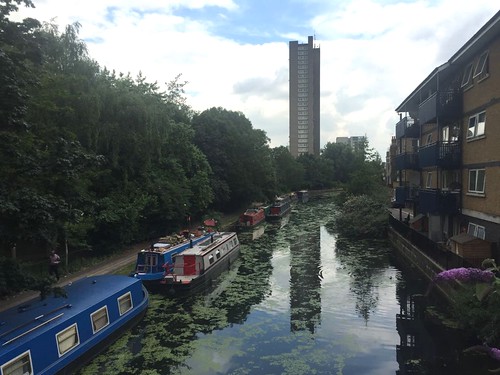
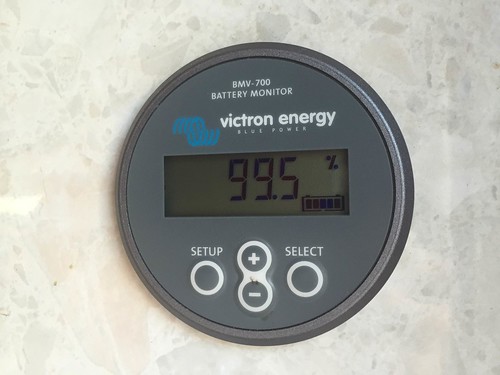
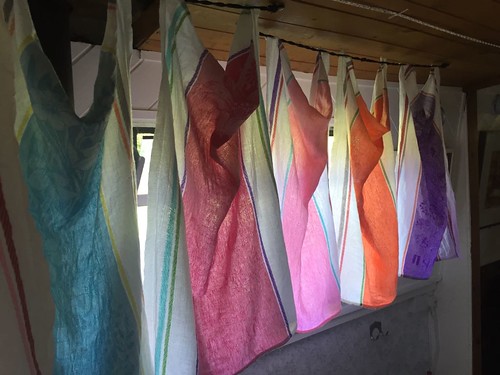
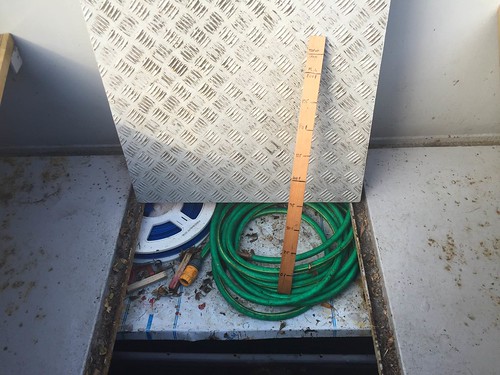
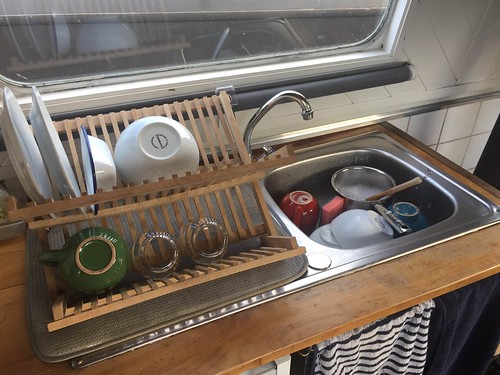

1 Comment:
I do love a good boat post! I don't think you've crossed the line into weird yet. Maybe quirky. Not as quirky as Maggie Smith in The Lady in the Van but you've got years to get there . . .
I think boat life appeals to theatre folk because it's all about constraints. We work in a world where we must create within a system of constraints so why not live in one as well. We are problem solvers by nature and you, Pam, are a problem solver extraordinaire!! I do hope to come and visit some time. I will shower at the hotel though . . .
Steven G.
Post a Comment